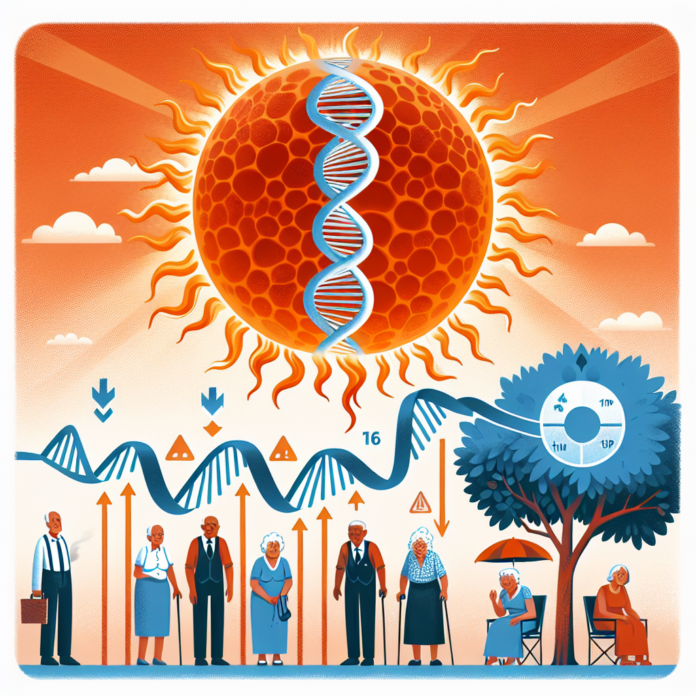Extreme Heat Speeds Up Aging in Seniors
Extreme Heat Accelerates Biological Aging in Older Adults
Recent research has highlighted a concerning link between extreme heat and accelerated biological aging in older adults. As climate change intensifies, heatwaves are becoming more frequent and severe, posing significant health risks, particularly for vulnerable populations, including the elderly.
The Impact of Heat on Aging
Extreme temperatures can exacerbate existing health conditions and lead to new ones. Studies indicate that prolonged exposure to high temperatures can cause physiological changes, such as increased oxidative stress and inflammation, which are known contributors to the aging process. These biological changes can manifest in various ways, including a decline in cognitive function, reduced mobility, and a higher risk of chronic diseases.
Research Findings
In a recent study, researchers analyzed the biological markers associated with aging in older adults who experienced extreme heat conditions. The findings revealed that those exposed to consistently high temperatures exhibited accelerated aging at the cellular level. This was measured through telomere length, a critical indicator of cellular health and longevity. Shorter telomeres are linked to a higher risk of age-related diseases and diminished overall health.
Vulnerabilities of Older Adults
Older adults are particularly susceptible to the adverse effects of heat due to a variety of factors, including decreased physiological resilience, comorbidities, and social isolation. Many elderly individuals may lack access to air conditioning or other cooling measures, increasing their risk of heat-related illnesses such as heat exhaustion and heatstroke. Furthermore, medications commonly prescribed to older adults can impair the body’s ability to regulate temperature, compounding the risks associated with extreme heat.
Preventive Measures
To mitigate the impact of extreme heat on older adults, it is essential to implement preventive strategies. Public health campaigns can raise awareness about the dangers of heat exposure and encourage individuals to take protective measures, such as staying hydrated, avoiding strenuous activities during peak heat hours, and utilizing cooling centers. Additionally, community programs aimed at checking in on isolated seniors can provide crucial support during heatwaves.
The Role of Policy and Adaptation
Addressing the health impacts of extreme heat requires comprehensive policy changes and climate adaptation strategies. Urban planning that incorporates green spaces, reflective surfaces, and improved public transportation can help reduce urban heat islands and provide respite for vulnerable populations. Furthermore, healthcare systems must be equipped to respond to heat-related health crises and prioritize research on the long-term effects of heat exposure on aging.
Conclusion
As our planet continues to warm, understanding the implications of extreme heat on biological aging is critical. By prioritizing the health of older adults and implementing effective strategies to combat the effects of heat, we can help safeguard their well-being and promote healthier aging in an increasingly challenging climate.


